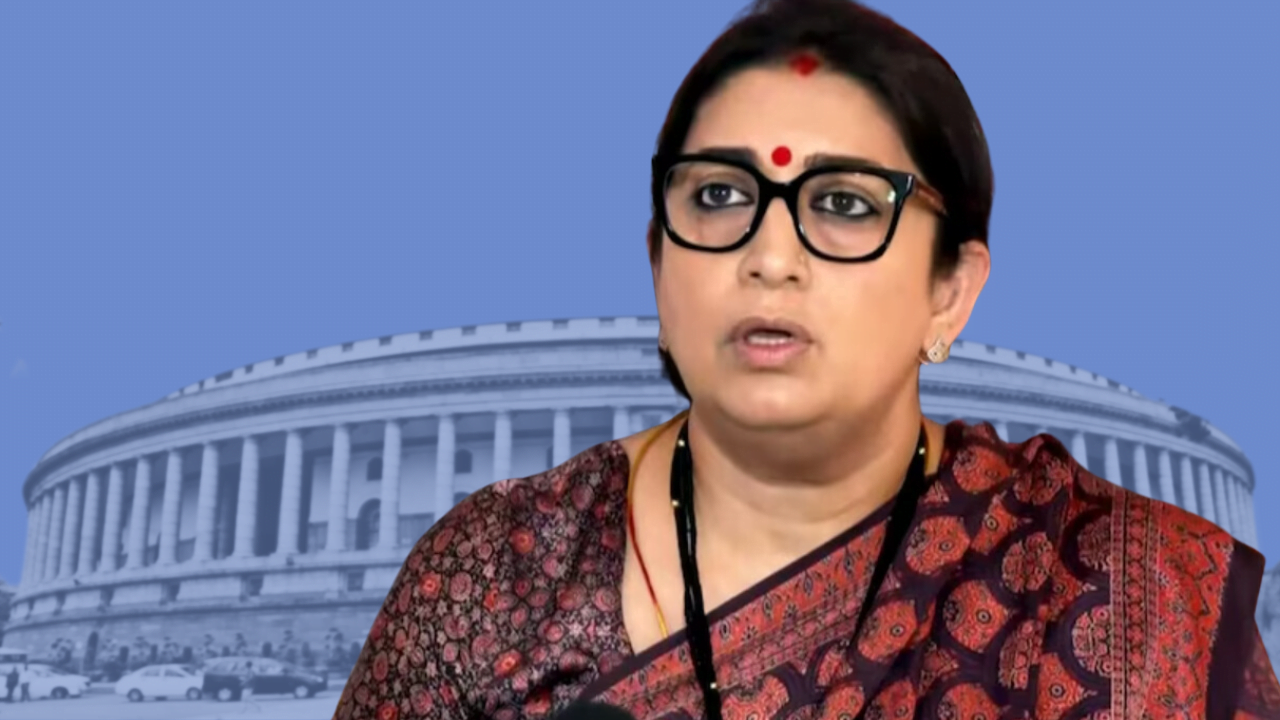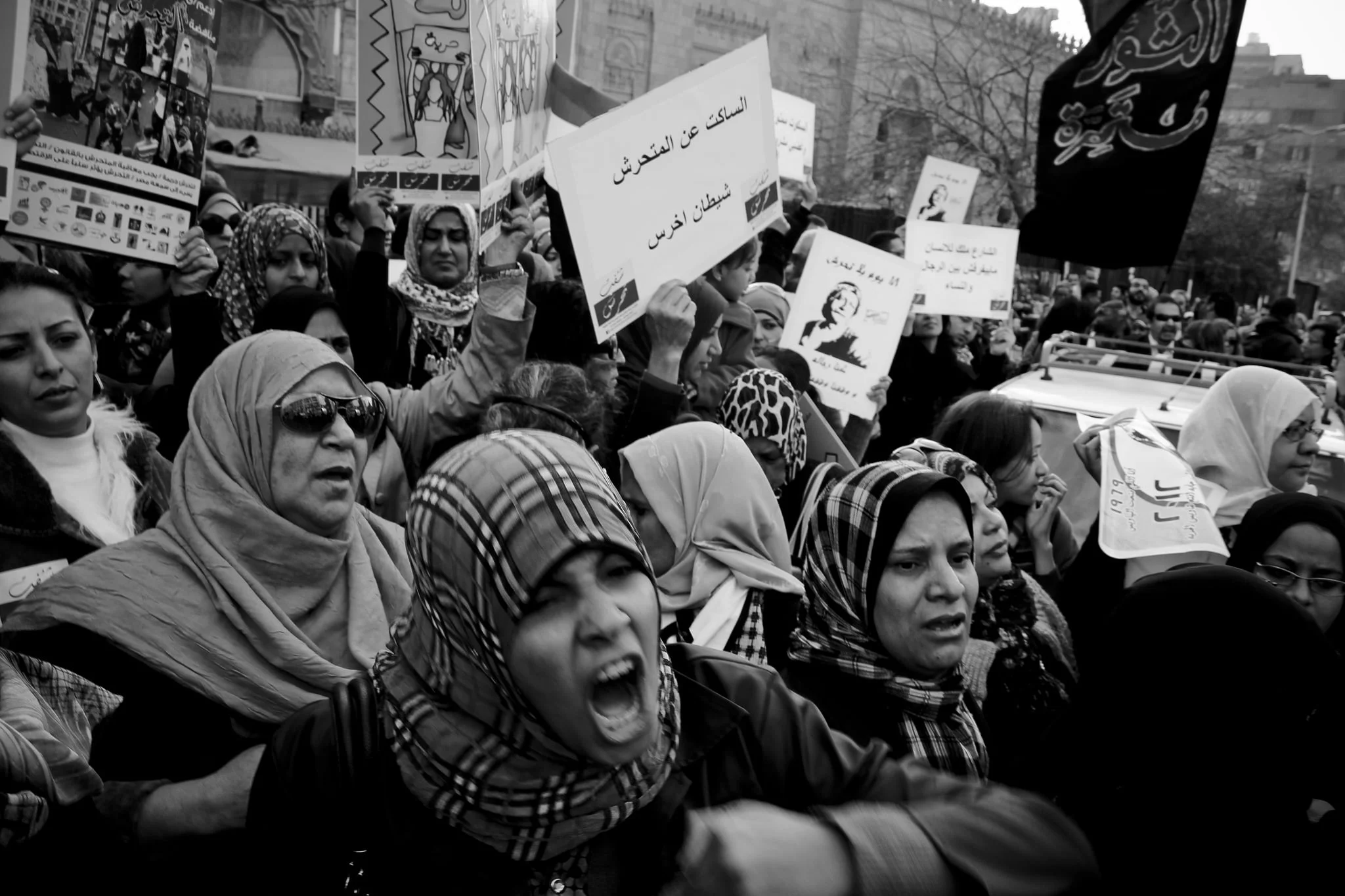As the nation gears up for the upcoming Lok Sabha elections, one name that has garnered significant attention is Smriti Irani. A fierce orator, a dedicated politician, and a woman of many talents, Irani has carved a unique path for herself in the male-dominated arena of Indian politics. With her unwavering determination and controversial yet captivating persona, she has become a force to be reckoned with, leaving an indelible mark on the nation’s political landscape.
Irani shot to fame in the TV serial “Kyunki Saas Bhi Kabhi Bahu Thi” in 2000, where she was cast as the iconic Tulsi Virani and became a household name in India and abroad. Her portrayal of the virtuous daughter-in-law was partly responsible for making the serial a superhit, cementing her place in the hearts of millions.
Early political beginnings
Smriti Irani started as a BJP activist during her television days, with her grandfather being a Swayamsevak in RK Puram and her mother having been involved with the Jan Sangh. Inspired by Pramod Mahajan and Manisha Chaudhary, she eventually joined the Bharatiya Janata Party (BJP) in 2003.
In 2004, Irani first contested a Lok Sabha election from Chandni Chowk in Delhi but lost to Congress heavyweight Kapil Sibal. Undeterred, she was elected to the Rajya Sabha from Gujarat in 2011 and re-elected in 2017 for a second term.
Irani contested against Rahul Gandhi from Amethi in the 2014 Lok Sabha polls but lost. However, she continued to cultivate Amethi in the next five years, and this helped her reap electoral dividends — she emerged as a giant killer of 2019 by defeating the ex-Congress president on his home turf, a historic victory that catapulted her to the national spotlight.
Youngest Cabinet Minister and tenure
Smriti Irani became the youngest cabinet minister in 2014 after the BJP won a massive victory in the Lok Sabha polls and was assigned the Ministry of Human Resource Development, becoming the first woman to hold this office. Her tenure as the Minister of Human Resource Development focused on the reformulation of the transformative National Education Policy 2020 (NEP 2020), which aimed to overhaul the education system in India.
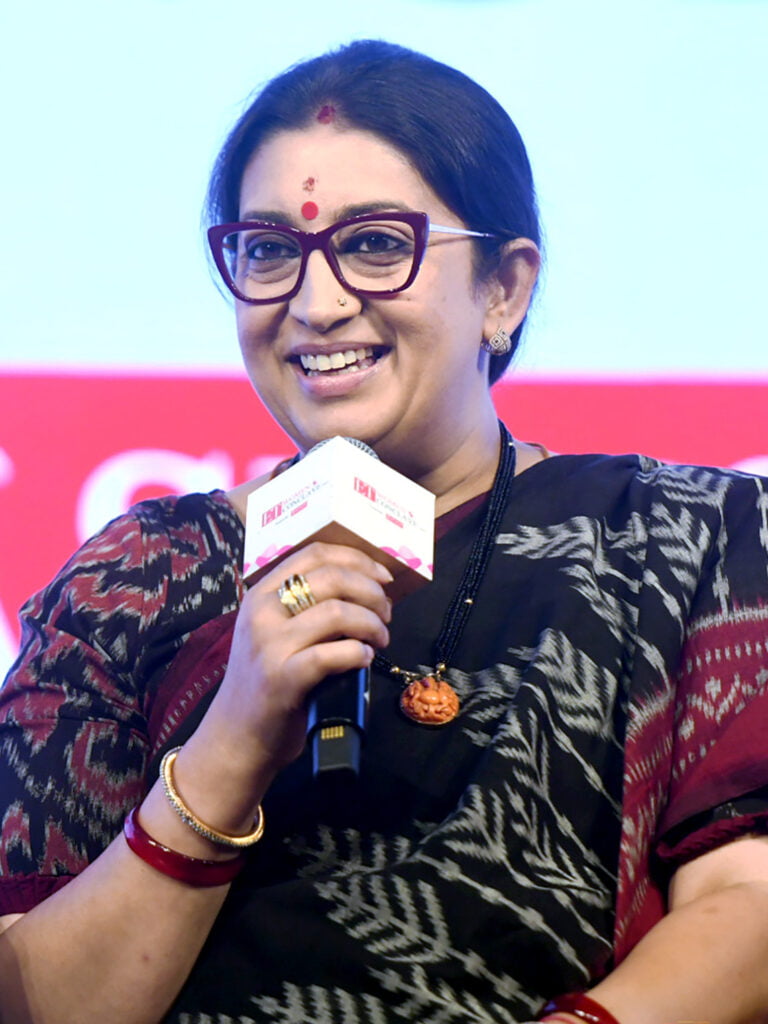
Under Irani’s leadership, the NEP 2020 proposed universalising early childhood care and education for children aged 3 to 6 by 2030 and achieving a 100 per cent gross enrolment ratio in school education over the same period. The policy emphasised measuring learning outcomes, introducing a 5+3+3+4 curricular structure, and promoting mother tongue/local language as the medium of instruction up to Class 5.
Although Irani’s role in shaping the NEP 2020 was significant it was also marked by controversies like Rohith Vemula’s suicide, wherein she stayed silent when requested to speak on institutional murder of the marginalised communities in esteemed institutions and allegations of saffronisation of education.
For higher education, the NEP 2020 envisioned achieving a 50 per cent gross enrolment ratio by 2035 and phasing out the system of affiliated colleges over 15 years. It proposed introducing a multidisciplinary undergraduate program with multiple exit options, such as certificates, diplomas, and degrees. The policy also advocated for the establishment of Multidisciplinary Education and Research Universities (MERUs) and the entry of foreign universities to promote the internationalisation of education.
Although Irani’s role in shaping the NEP 2020 was significant it was also marked by controversies like Rohith Vemula’s suicide, wherein she stayed silent when requested to speak on institutional murder of the marginalised communities in esteemed institutions and allegations of saffronisation of education. Her upfront promotion of Sanskrit at the cost of replacing German as the third language in Kendriya Vidyalaya schools across the country drew criticism for her attempt to prioritise Hindu traditions over other linguistic and cultural influences, aligning with the BJP’s Hindutva ideology.
Championing women’s empowerment?
One of Smriti Irani’s most significant contributions has been her unwavering commitment to women’s empowerment and gender equality. Recognising the potential of women scientists as role models, Irani actively sought to increase their participation in various initiatives undertaken by her ministry to promote girl education and bring about positive change in rural areas. With women comprising nearly 20 per cent of the workforce at the Defence Research and Development Organisation (DRDO), she believed that their involvement could serve as a source of inspiration for countless young girls across the nation.
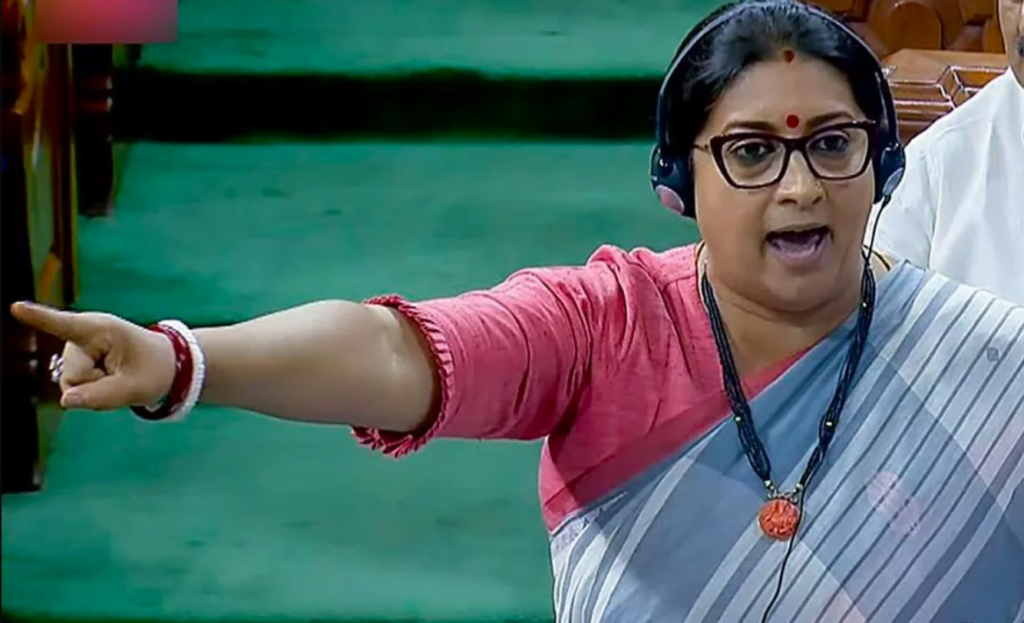
Irani’s efforts to leverage the expertise and experiences of DRDO’s women scientists in educational outreach programs were aimed at not only encouraging female students to pursue careers in science and technology but also challenging deep-rooted societal norms and biases. By bringing these accomplished professionals into direct contact with rural communities, Irani sought to foster an environment that celebrated women’s achievements and empowered girls to dream big.
After prolonged protests by the Indian wrestlers for safety and dignity both within and beyond the ring; Sakshi Malik, the first Indian female wrestler to win a medal at the Olympics (Summer Olympics 2016), sacrificed her career, as the accused obtained bail, yet Irani failed to address the issue or support the affected athletes.
However, Irani’s stance on women’s rights has been tainted by apparent double standards and selective outrage. While she seemed furious about the recent incidents of gender-based violence in Sandeshkhali, West Bengal, accusing the Trinamool Congress party of failing to provide due assistance, her silence and inaction on the horrific Manipur crisis was deafening.
When allegations of sexual harassment surfaced against the BJP MP and Wrestling Federation of India (WFI) president, Brij Bhushan, and yet his aide later became the new president despite the accusations, Irani remained conspicuously silent. After prolonged protests by the Indian wrestlers for safety and dignity both within and beyond the ring; Sakshi Malik, the first Indian female wrestler to win a medal at the Olympics (Summer Olympics 2016), sacrificed her career, as the accused obtained bail, yet Irani failed to address the issue or support the affected athletes.
Regarding the wrestlers’ protest, the Congress spokesperson Supriya Shrinate stated that Irani’s lack of response exposed her stance on women’s issues as selective rather than a genuine pursuit of gender equality and social justice.
Continued political journey
In 2019, Smriti Irani became the Minister of Women and Child Development and Minister of Textiles – a reward for her historic victory over the Congress President in Amethi. An eloquent speaker and an effective communicator, she often became the BJP’s first choice for addressing the party’s press conferences and defending it during debates in Parliament.
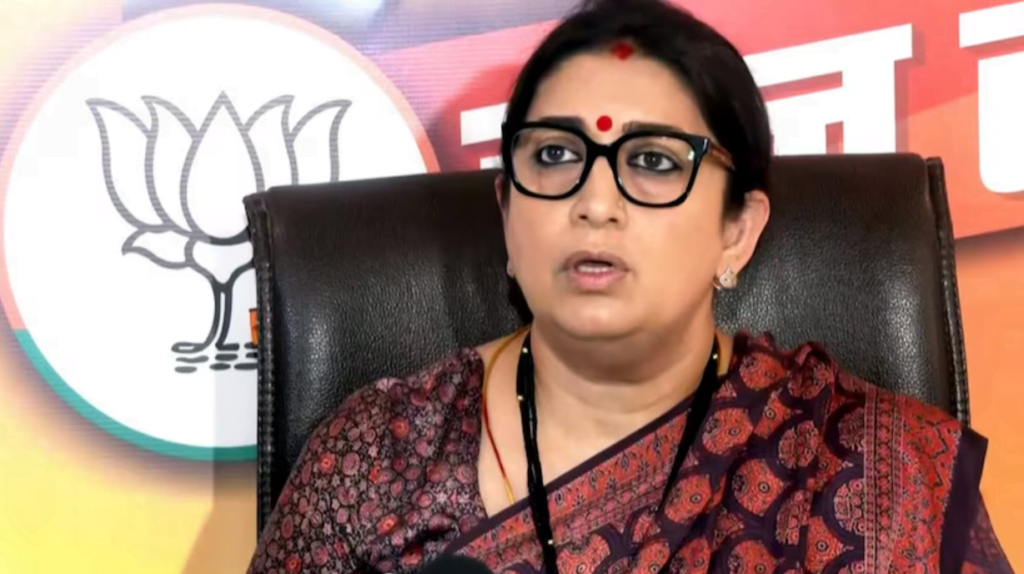
Within the BJP, Irani has served in various posts like National Secretary, National Executive member, Vice-President of BJYM’s Maharashtra unit, and President of the BJP Mahila Morcha.
PM during the Union Cabinet reshuffle in July 2021, transferred the charge of the Textile Ministry to Piyush Goyal, and included Smriti as one of the new members of the Cabinet Committee on Political Affairs, further solidifying her position within the party’s inner circle.
As Smriti Irani gears up for the upcoming Lok Sabha elections, her political future remains slightly uncertain. Her popularity and influence within the BJP cannot be denied, but her ability to resonate with a broader electorate remains a question mark.
Critics argue that her polarising stance on contentious issues and her perceived lack of administrative experience may hinder her prospects. However, her supporters assert that her connection with the masses, her oratory skills, and her unwavering commitment to the party’s ideologies make her an indispensable asset.
